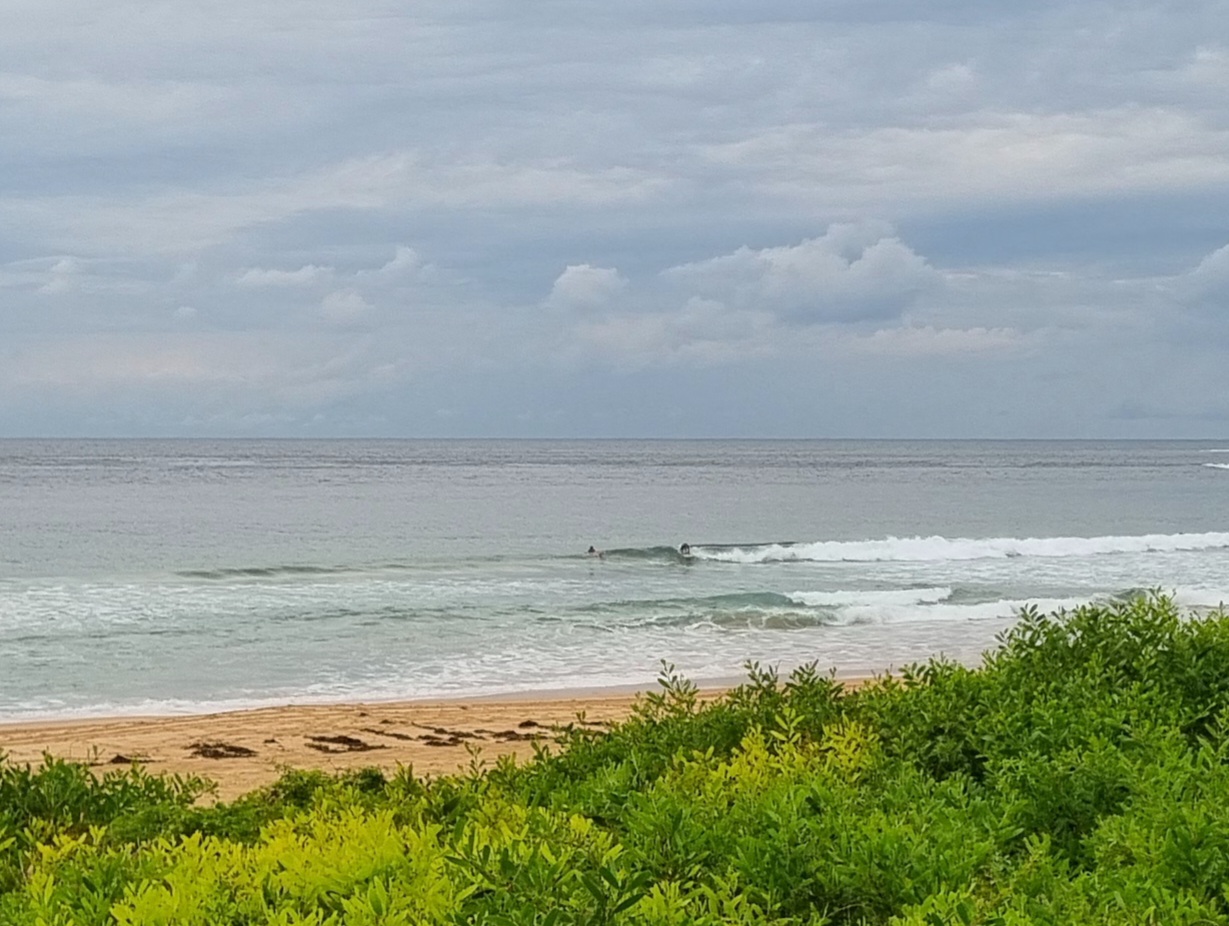(Press release)
Australia’s number one junior surfer shares his pain
Few would describe chronic spinal pain as a “blessing in disguise,” but these are the words Mitch Crews uses to describe his ankylosing spondylitis (AS).
The 20-year-old professional surfer was diagnosed with AS in November 2009 after having experienced “continuous and annoying pain” in his lower back, wrists and ankles.
“I had symptoms for a good month-and-a-half until I actually considered it might be something serious,” explains Crews.
“I didn’t have symptoms other than swelling and pain in the joints, but I did feel exhausted and lacking in energy. I also had a lot of trouble sleeping from the discomfort,” he recounts.
“I was very upset when the doctor told me it was AS and that it was serious, as I thought I wasn’t going to be able to surf anymore and surfing is my whole life.”
Mitch describes his AS as: “throbbing, deep pain,” and explains that during a flare-up; “it constantly hurts and every time I move, it gets worse.”
The initial shock of his diagnosis has been overshadowed by an overwhelming determination to pursue his dreams despite living with AS- the young gun is currently Australia’s number one ranked junior surfer.
As many people living with AS find, Mitch says living an active lifestyle is crucial to beating his AS pain.
“Being active keeps you feeling mobile, which is why I find surfing so great. I also practice yoga to keep me flexible and loosen the joints,” he says.
So, why the blessing in disguise?
“I really look after my health and fitness a lot more than I used to,” Mitch enthuses, “and I am fitter and stronger than I ever have been in the past!”
Mitch is an inspiration to people living with AS, not only for his dedication to keep surfing against the odds, but also because of his upbeat attitude.
“AS is something I, and many others have to deal with. You can live a normal and happy life if you just change a few things around: I am a clear example of that. You just need to be flexible and positive to make it easier on yourself and your AS,” he explains.
Mitch also considers himself lucky in that his friends and family have played a “huge part” in fighting his AS.
“I have regular check-ups just to see how I’m going,” he says, “and anyone else experiencing chronic spinal pain or who thinks they may have AS should definitely get themselves looked at by a GP immediately. Doing nothing about it will not help the situation.”
According to Dr Louis McGuigan, president of the Australian Rheumatology Association, like Mitch, many Aussie men could have much more than a ‘bad back’ and without proper diagnosis could have serious consequences.
“Mitch was smart in seeking help early so he can now control his condition rather than it controlling him. But you don’t have to be a professional sportsman to take action. It is imperative anyone with persistent back pain sees a GP and asks if they need a referral to a rheumatologist,” said Dr McGuigan.
About Mitch Crews’ condition – ankylosing spondylitis (AS):
AS is three times more common in men than women. It causes inflammation and pain in the spine and other joints including the shoulders, hips, knees, ankles, chest and back. If left untreated, AS can lead to permanent stiffening of the spine and in severe cases, the bones in the spine can fuse together, stopping movement and causing a permanently forward-stooping posture. It is estimated that as many as 200,000 Australians have been diagnosed with the condition.
Dr Louis McGuigan’s advice to men living with spinal pain:
“If you are experiencing back pain, look out for particular hot spots where the pain is coming from – such as the shoulders, the base of the spine or the middle of your back (the lumbar vertebrae). Being able to detect where the pain is coming from will help your doctor determine a diagnosis.
“The best way to manage back pain, alongside treatment, is through regular physical activity. Being active tends to help keep the pain under control. It is important that you discuss with your doctor what types of exercises are best for you to start as soon as possible,” added Dr McGuigan.
Issued by Cube on behalf of Arthritis Australia.
Abbott Australasia proudly supported Arthritis Australia to conduct this awareness campaign with an untied educational grant.
Interviews available with: Mitch Crews and Dr Louis McGuigan, president of the Australian Rheumatology Association.
For further information contact:
Prudence Buxton on 02 9578 2053 / 0423 314 648 / [email protected]
Kylie Whetton on 02 9578 2052 / 0413 061 122 / [email protected]

